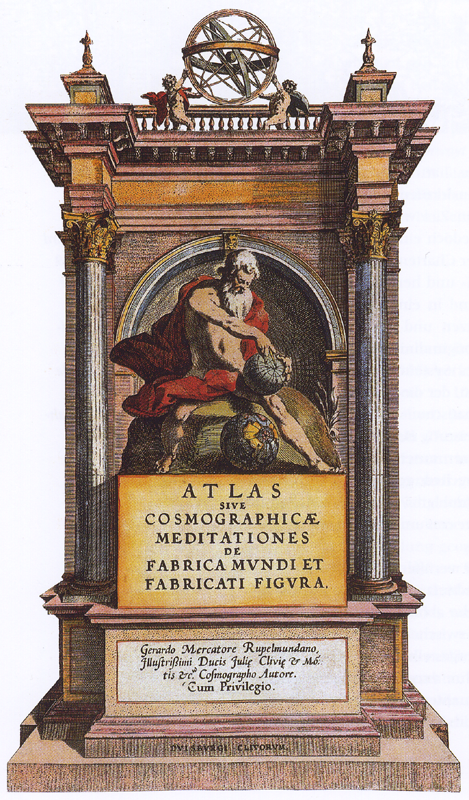
An atlas is a comprehensive collection of maps, traditionally bound in book form but now also available in multimedia formats, often featuring geopolitical, social, and economic statistics in addition to geographical features. The term "atlas" was coined in 1595 by Flemish geographer Gerardus Mercator for his posthumously published work, Atlas Sive Cosmographicae Meditationes, initially defining it as a description of the universe and honoring the Titan Atlas. Though Italian cartographer Pietro Coppo prepared early systematically arranged maps, Abraham Ortelius's Theatrum Orbis Terrarum, printed in 1570, is conventionally recognized as the first modern atlas. Unlike today's ready-made versions, early printed atlases were often customized, with clients selecting contents and finishes before binding. Modern atlases have diversified greatly, encompassing travel guides, celestial maps of other planets, and even anatomical representations of the human body.